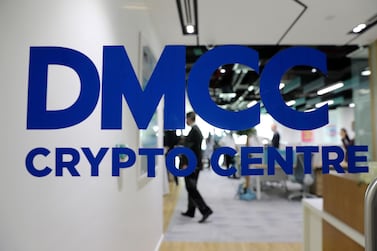The data economy is on track to become one of the largest economic sectors globally, according to a new report by Dubai Future Foundation (DFF) and Dubai Economy.
The global market for big data is predicted to touch $243.4 billion by 2027, more than trebling from the last year's $70.5bn, the report, titled New Data Economy, said.
A data economy is a digital-based environment in which information is assembled, managed and traded by a network of vendors to create value, typically from greater efficiency or unique insight.
As the world responds to the Covid-19 pandemic, data is helping policymakers and businesses make key decisions related to resuming services, while mitigating supply chain disruptions and contributing to important research.
“Data is considered a high-value asset and a national resource for governments that boosts their competitiveness and preparedness to face future challenges,” Khalfan Belhoul, DFF’s chief executive, said.
DFF has teamed up with various stakeholders in the Emirates and abroad to study the future of data, identify emerging trends and make recommendations to leverage information.
The pandemic has also led to growth in other sectors such as retail and investment banking.
The global retail market is expected reach $29.4 trillion in 2025, growing at an annual rate of 7 per cent, according to a report on Research and Markets.
The global investment banking market is expected to surge to $137.9bn in 2025, growing at 5 per cent on an annualised basis, Research and Markets said.

According to Google's estimates, the value originating just from Search and Maps data in the UAE is around $2.7bn a year. This value can be optimised if data is used more efficiently, the company said.
Companies and governments are using data to increase efficiency, streamline operations and derive strategic insights with a level of accuracy that was not previously possible, the report said.
In advanced economies, such as Germany, the UK and the Netherlands, the data economy already represents up to seven to 10 per cent of the economy and is expected to double over the next few years, it added.
Data is also spurring the development of entirely new technologies and business models. The opening of geographic information systems (GIS) data, for example, has fuelled the growth of the global positioning system industry that currently represents a market worth over $128bn, according to the US market research firm Reportlinker.
In the healthcare sector, data sharing and analytics across research institutions and hospital facilities have driven the emergence of the precision medicine industry. The global precision medicine industry is expected to be worth $105bn in next five years, according to India-based research firm UnivDatos Market Insights.
The report recommended stepping up collaboration among various stakeholders to improve data quality and management.
“This will enable public and private sector entities, start-ups and innovators to access and exchange open-source data with researchers and other interested parties,” it said.
Other suggestions included developing existing open data platforms, fast-tracking data exchange through sharing models, curbing anti-competitive practices by large data holders and aligning data-sharing requirements with the needs of specific sectors.

Dubai has been at the forefront of technology adoption since it announced the first ICT strategy in 1999. It was followed by initiatives such as e-Government, m-Government, Smart city, open data, autonomous transport and the mandating of blockchain for government transactions.
“What makes the city stand out among the rest in the region is the fact that digitalisation has been built into the government’s public service and economic development strategy,” Mohammad Al Saadi, chief executive of corporate strategic affairs sector in Dubai Economy, said.
“Moving forward, we need to power ahead of the competition with our digital innovation, business-friendly data policies and technology investments to ensure maximum returns for our society, business and economy.”








